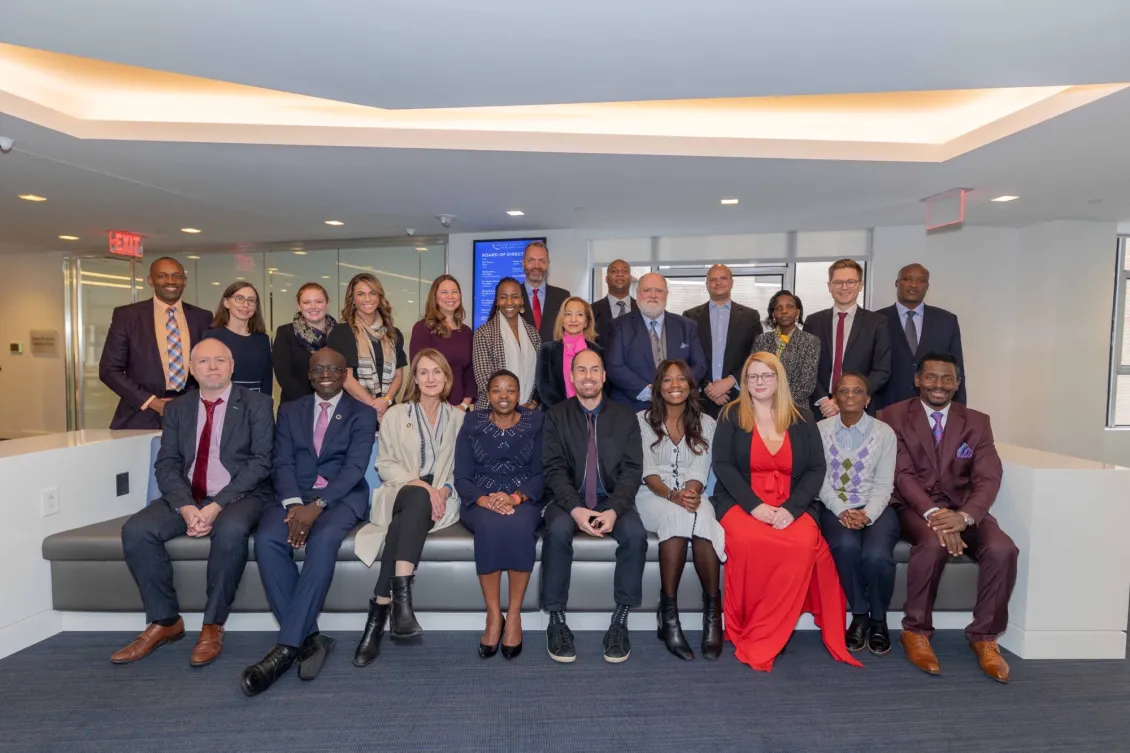Around 4.3 million Kenyans have been impacted by ongoing drought in the Horn of Africa—the worst climate event in the region in four decades, Kenya’s First Lady told a group of business leaders and government officials convened by the Global Partnership for Sustainable Development Data (Global Partnership) and the United AI Alliance recently.
“Kenya is not unique,” Her Excellency Mama Rachel Ruto said. “Climate events have been recorded all around the globe with devastating impact on people’s lives, natural resources, and the physical infrastructure upon which they depend. These shifts and accelerated risks adversely affect women more than men. Therefore, women must be at the forefront of accessing these new tools and technologies to build resilience.”
Amidst the worst food security crisis in decades, a new multi-stakeholder Climate Action Lab co-designed by the Government of Kenya and a consortium of partners under the United AI Alliance will harness the power of data, technology, and innovation to shore up climate resilience.
Leaders of the East African nation and the United AI Alliance announced support for phase one of the lab on December 15th at a high-level breakfast at the United Nations (UN) Foundation in Washington D.C. alongside the 2nd U.S. Africa Leaders Summit, Washington DC. The first phase of the Climate Action Lab, provided by the Hewlett Foundation, includes 15 mobile data science workstations and two tower data science workstations worth more than USD $140,000.
Support for the founding of the Climate Action Lab will come from United AI Alliance partners, including the Global Partnership, NVIDIA, Future Tech, Amazon Web Services, HP, Bentley Systems, MIT and others. United AI partners will provide technical solutions, training, software, cloud storage, and personnel—among other in-kind support—for the first phase of this initiative. The support also includes technological solutions to an initiative founded by Kenya’s First Lady’s focusing on mothers, in light of increased digitalization and the need to build institutional capacity in the era of accelerated technological use for the Mama Doing Good Organization.
The goal of the Climate Action lab, partners explained, is to “provide an integrated, [end-to-end] solution that combines hardware and software, cloud storage, digital solutions, and access to complementary sources of data including satellite imagery, advanced analytical capabilities, data science training, and applied use-cases.” A multi-stakeholder partnership, including government ministries, departments and agencies will be integrated into the lab and have access to use its data and tools to address climate challenges and its interrelated risks.
The First Lady of Kenya was accompanied at the event by Philip Thigo, Executive Director of the Thunderbird School of Global Management and the Mama Doing Good Organization, and by representatives from the Ministry of Foreign Affairs and Ministry of ICT (Konza) who agreed to leverage this collaboration in support of the Presidential Climate Ambition and to design use-cases. Use cases will be showcased in early 2023 in Kenya at the recently announced Presidential Climate Action Summit, hosted by Kenyan President Dr. William Ruto.
“Global challenges require global solutions and Kenya has long recognized the value of innovation and bringing diverse sectors together to energetically drive toward solutions,” UN Foundation President and CEO Elizabeth Cousens told those assembled.

Kenya has been a long-time champion for data and evidenced-based decision making since the founding of the Global Partnership.
The Global Partnership in collaboration with NVIDIA, the United Nations Economic Commission for Africa (UNECA) and Future Tech launched the United AI Alliance in 2022 to support governments, nonprofits and local developer communities with data science training and technology to improve resource allocation and support more informed policy making across the African continent.
The Alliance is providing a range of AI-powered hardware and software solutions and technical expertise. So far, eight National Statistics Offices (NSOs) in Africa have received high-capacity computing data science workstations with advanced analytical capabilities and accompanying training. Ghana, Kenya, and Rwanda are creating data science units within their National Statistical Offices as a result, and Botswana and Kenya will be using the workstations for high-capacity data analytics soon.
“This approach has tested the demand for this type of support, the ability to deliver the hardware successfully, and to offer data science training for the application of the workstations on real life use-cases,” said Davis Adieno, Senior Director of Programs at the Global Partnership.
